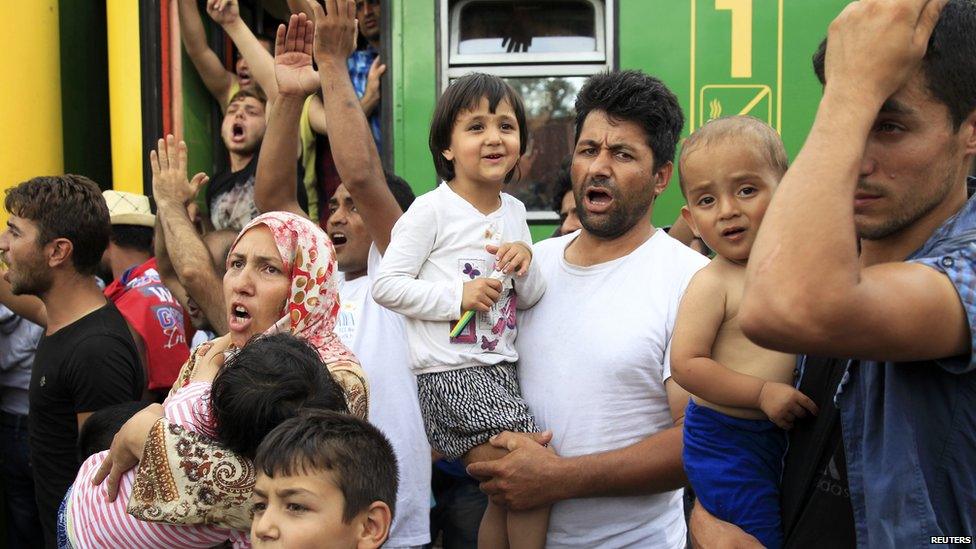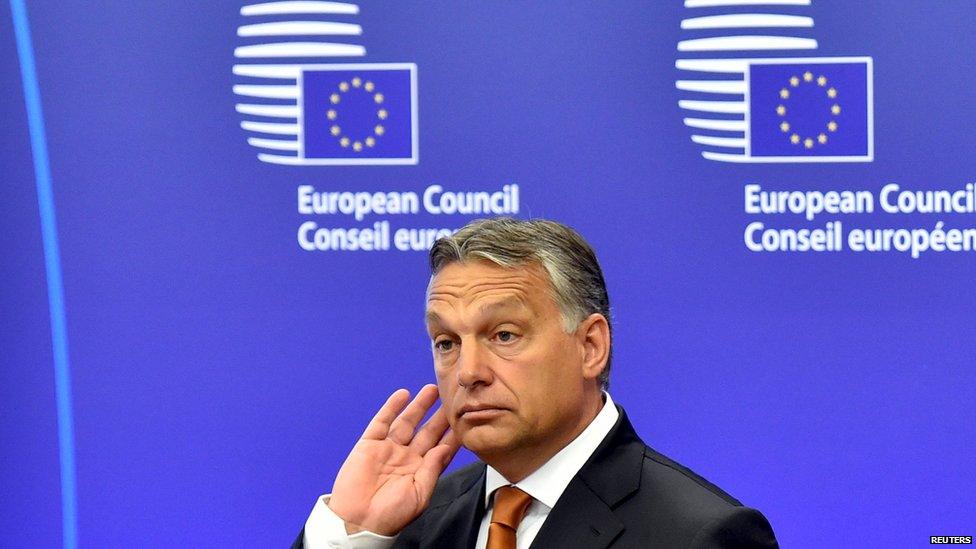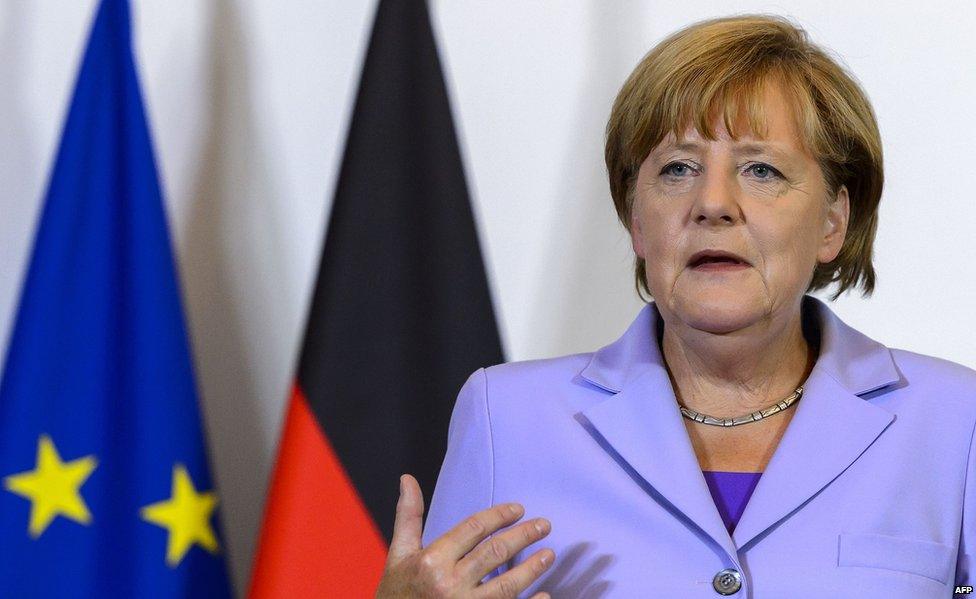Migrants crisis: Hungary's Orban lays bare EU East-West split
- Published
Hungary's prime minister says the migrant crisis is "a not a European problem, it is a German problem"
There is sympathy in Brussels for the dilemma facing Hungary as the latest flashpoint in Europe's migration crisis.
But there are precious few admirers of either the rhetoric or the solutions put forward by Hungary's controversial Prime Minister, Viktor Orban.
"It's Germany's problem," he said in the European Parliament. And the moral thing to say to refugees? "Please don't come here."
His interlocutors in the European institutions made no attempt to sugar coat their disagreements with the pugnacious Mr Orban.
There were - unusually - very public rebukes.
"What we're seeing," said Martin Schulz, the parliamentary president, "is egoism instead of common European sense".
A deeper split in the EU "is a risk we cannot exclude," Mr Schulz added, if member states fail to work together.

Hungary has become a focus of the crisis in recent days after hundreds of migrants were barred from travelling by train through the country
At the European Council, its President Donald Tusk was even blunter. He took specific issue with a German newspaper article, external, in which Mr Orban said Europe's Christian heritage was under threat.
"Referring to Christianity in a public debate on migration," Mr Tusk said, as Mr Orban stood alongside him, "must mean in the first place the readiness to show solidarity and sacrifice."
"For a Christian it shouldn't matter what race, religion and nationality the person in need represents."
East-West divide
Within a few minutes at the microphones, some of the political and cultural divisions that have emerged during this crisis were laid bare.
It is partly, but not entirely, a split between Western and Eastern Europe, where more diverse societies and a recent history of support for refugees are far more rare.

Viktor Orban says Hungarians are "full of fear because they see that the European leaders... are not able to control the situation"
But it is also about smaller countries objecting to having policies imposed upon them by others.
That, though, is exactly what may be about to happen. The big guns are moving into position.
France and Germany are putting forward joint proposals for a mandatory quota system that could see more than 100,000 refugees distributed "more fairly" across the EU.
They have been in close contact with the European Commission and the European Council.
And when that kind of political weight is set in motion, something usually happens.

German Chancellor Angela Merkel has warned that all European countries are obliged to offer protection to those fleeing war and persecution
What if countries in Eastern Europe put a collective foot down and refuse?
The Visegrad Four group of countries - Poland, Hungary, Slovakia and the Czech Republic - meet on Friday to co-ordinate their response.
But they will be leant on heavily. And suggestions that the alternative could be the re-introduction of travel restrictions within the border-free Schengen area will be met with howls of dismay.
Warning shots
For many Eastern Europeans free movement is the most positive aspect of EU membership.
As for other countries, Britain, Ireland and Denmark will not have to take part in any mandatory scheme, but Ireland has already said it will take in more refugees on a voluntary basis.
And the British government may be feeling the pressure.
There have been isolated but clear warning shots fired towards Westminster.
If the UK fails to show greater solidarity on this fundamental European crisis, others may well feel less inclined to support British efforts to renegotiate their relationship with the rest of the EU.
There are difficult decisions ahead for everyone.